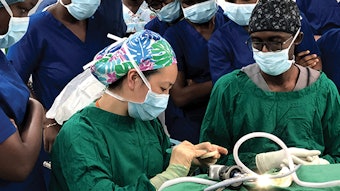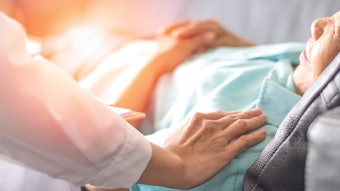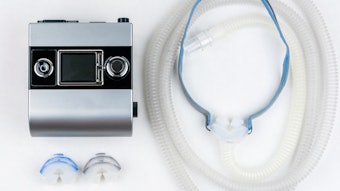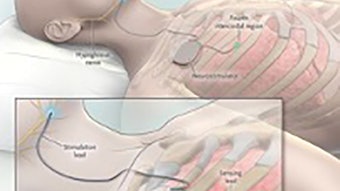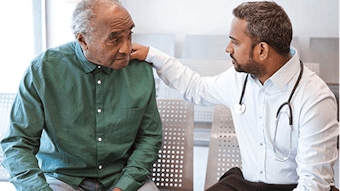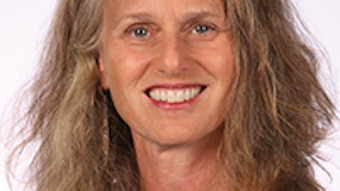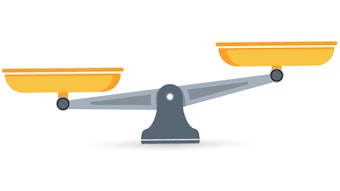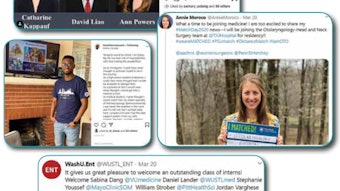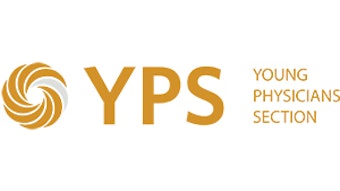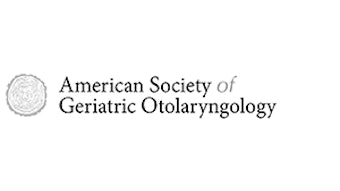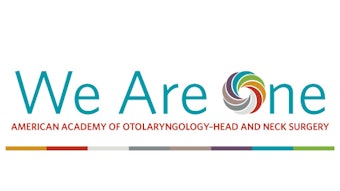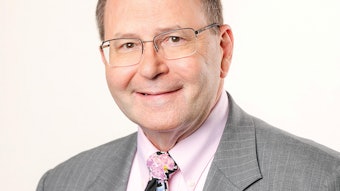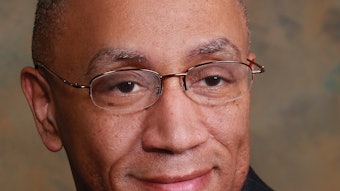Peer Support: Taking Care of Ourselves and Each Other
Much of our identity is wrapped up in the culture of our profession as otolaryngologists, surgeons, healers. This is a good thing. It doesn’t negate our other core identities: mom, wife, daughter, sister, friend, activist, etc. We are all a synthesis of these various parts of our whole being.
Jo A. Shapiro, MD
Much of our identity is wrapped up in the culture of our profession as otolaryngologists, surgeons, healers. This is a good thing. It doesn’t negate our other core identities: mom, wife, daughter, sister, friend, activist, etc. We are all a synthesis of these various parts of our whole being.
And what an honor to be a healthcare provider and specifically an otolaryngologist. People trust us with their lives. We affect people on such deep levels. It takes so long to acquire the science and art of being a master in our field. We’re always learning and growing. It’s a lifelong journey that we are proud to be on.
While embracing these unique and rewarding aspects of our professional culture, we need also to wake up to the dark side of our culture. This dark side is not unique to our specialty. In my experience, both the positive and negative aspects of medical culture are universal: across specialties, disciplines, types of healthcare organizations, and even across national and international settings. Simply put, the culture of medicine does not value our well-being. We are expected to be immune to our own and our colleagues’ physical, mental, and emotional suffering. Self-care is viewed as selfish. Denial of our needs is seen as both expected and heroic.
To be clear, much of the time we need to put patients’ needs above our own. There is so much work to be done, especially now. But we cannot ignore our own humanity indefinitely. Doing so has been a major factor in allowing burnout to take root and flourish. Doing so has contributed to the appalling rates of physician suicide. We need a different approach. Right now.
Based on my years of experience in collaborating with others on promoting the well-being of physicians and other healthcare providers, I have the following observations.
We need to be aware, both personally and as a community of professionals, of the negative cultural biases that are ingrained in all of us, because the only way to overcome biases is to acknowledge their presence and decide to act differently.
We believe that sleep deprivation doesn’t affect us the way it does nonsurgeons; we are trained to power through, and we are fine with less than six hours of sleep each night. Get acquainted with the sleep literature: Even short-term sleep deprivation can cause cognitive impairment.
Depression, anxiety, and other mental health disorders are at least as common for us as they are in the general population. Substance use disorder is a disorder, not a moral failing. All of these are treatable. In the past, it was extremely difficult to get help without permanently jeopardizing one’s career. Currently, we can be treated in a way that protects both us and patients—under the auspices of experts in physician health organizations.
We are each at risk for experiencing acutely stressful events at some point in our careers: errors, being named in a lawsuit, a bad patient outcome unrelated to adverse events, etc. Errors are particularly challenging for us. We are taught that providing the highest-quality patient care is dependent upon our perfect performance. Yet safety science teaches us that eliminating human error is an impossibility. No matter how smart, well-trained, and proficient we are, humans are wired to make errors. Patient safety cannot be predicated on the impossibility of perfect performance. Instead, patient safety depends on decreasing the chances of our making individual errors, understanding what conditions may set us up to make errors, and then applying both personal and systems accountability to improvement and learning. This is the basis of a safety culture as opposed to the shame-and-blame culture that most of us trained in and have inadvertently perpetuated.
The COVID-19 pandemic is a massive challenge for us as a society and as a profession. The specific challenges are legion: distribution of PPEs, testing capabilities, decisions regarding what the new standards are for care, ethical challenges regarding who gets what care, and many more. Associated with these challenges is their effect on us—sleep deprivation, overwork, and the myriad human emotional responses that may include fear, anger, anxiety, moral distress, and helplessness.
What is a way forward given our culture and the challenges we face in practicing our profession? I believe there are several core principles:
- Value what we do. As I have said on podcasts, webinars, virtual town halls, and peer support training sessions, thank you for all you do. Every single one of you. It is remarkable and beautiful.
- Acknowledge our pain. We suffer because we are compassionate and vulnerable, not because we are weak or selfish. Let’s acknowledge our emotions so that we can manage them rather than be destroyed by them. Use peer support to allow ourselves to speak about our occupational distress with our colleagues in a safe environment. Let’s acknowledge our mental health and physical challenges so we can get expert treatment. Stay attuned to your own physical, emotional, and mental health.
- Rely on our professional collegial community. Community will get us through this crisis and through all the challenges in our profession. Organizations such as the Academy of Otolaryngology–Head and Neck Surgery, the American College of Surgeons, and the American Medical Association are all working to advocate for us and connect us with knowledge and expertise to deal with COVID-19 and other major crises. Our local healthcare teams need our guidance and appreciation for the work they do. And they in turn will support us. Create processes for checking in with the team, whether daily or weekly. Laura Rock, MD, for example, has done pioneering work on clinical debriefings. The Center for Medical Simulation created a related process for daily briefings and debriefings. Make sure such processes explicitly integrate some form of peer support for emotional responses to current challenges.
- Individual peer support is key. Don’t put the burden on your colleague to ask for help; they are highly unlikely to do so because of the cultural stigma. Offer your colleague some time to just decompress. The essence of peer support is reaching out to your colleague to offer your loving presence. Help them identify what healthy coping mechanisms they can use. Normalize and validate their negative emotions. Without minimizing their emotions, remind them also of how much good they do.
We can’t fix each other’s pain, but we can go a long way to helping each other through the pain.
References
- Shapiro J. We Have Enough Information to Act. Otolaryngol Head Neck Surg. 2018;158(6):985-986.
- Shapiro J, Galowitz P. Peer Support for Clinicians: A Programmatic Approach. Acad Med. 2016; 91(9):1200-1204.
- Ripp JA, Privitera M, West C, Leiter R, Logio L, Shapiro J, Bazari H. Well-being in medical education: A call for action. Acad Med. 2017l;92(7):914-917.
